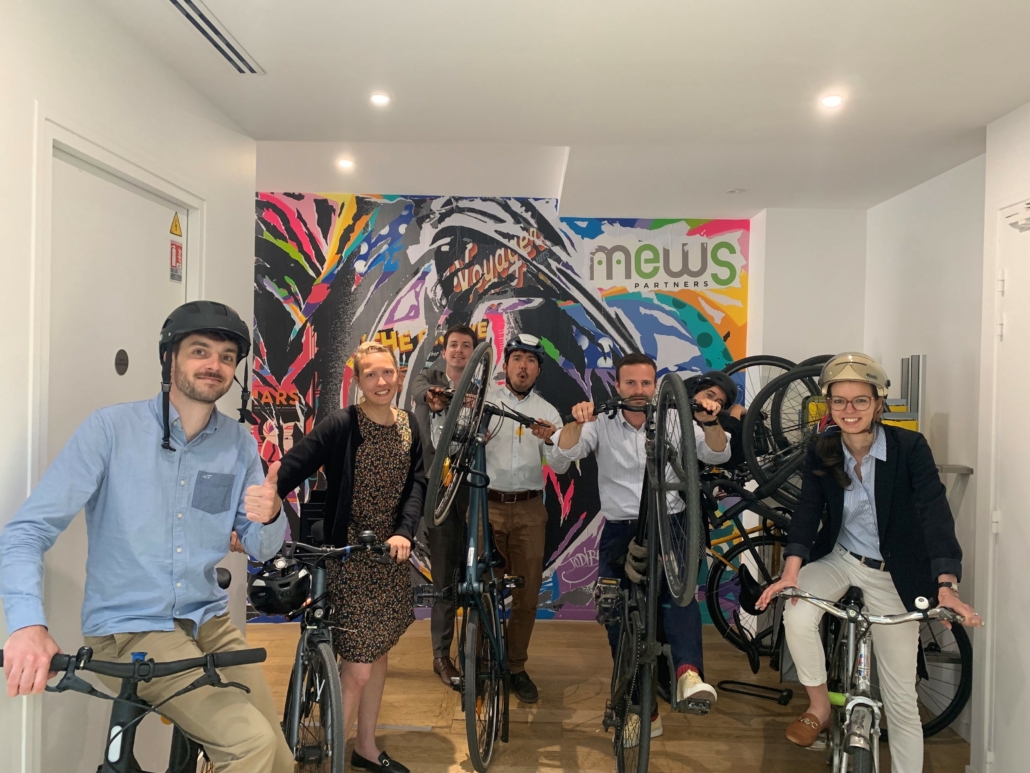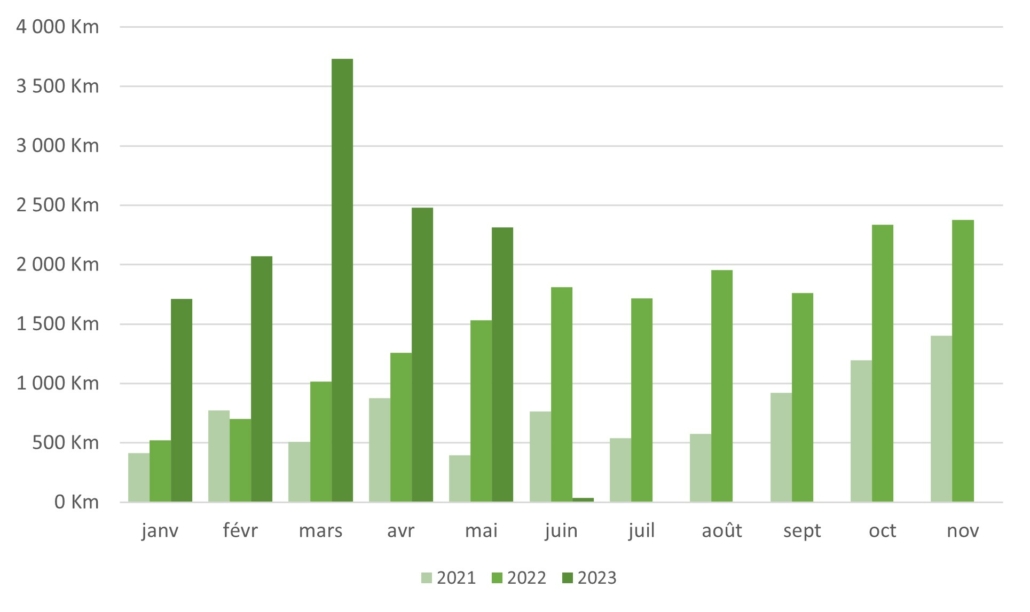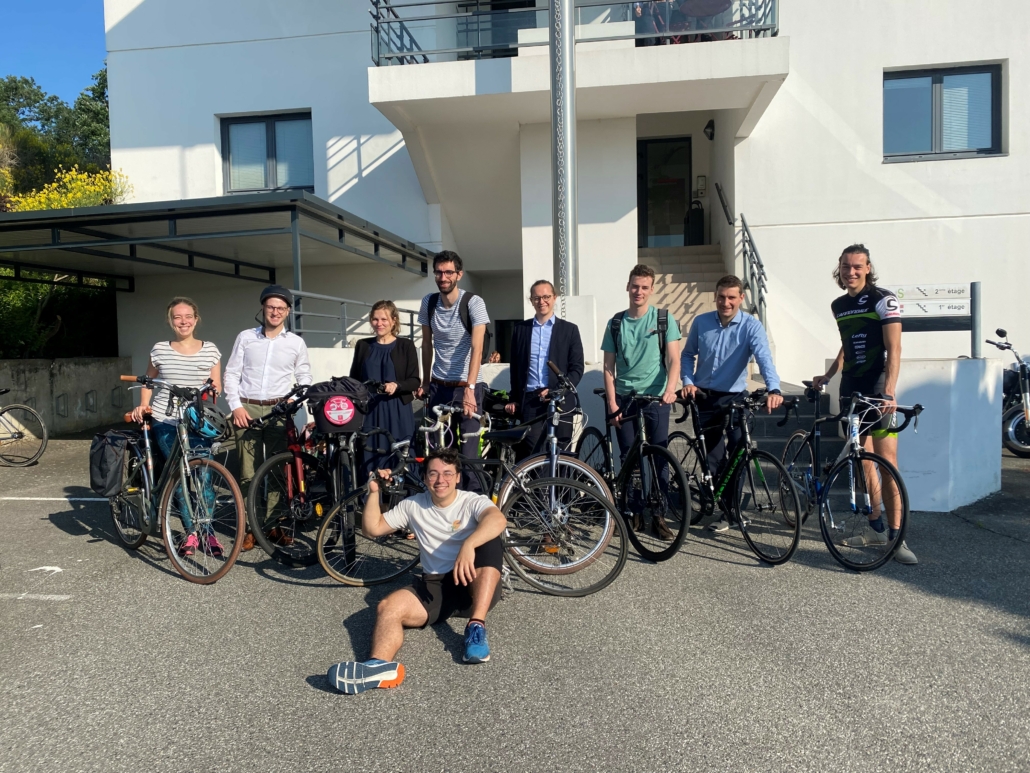Mews Partners promotes soft mobility
Since 2018, the United Nations has proclaimed June 3 “International Bicycle Day” to draw attention to the benefits of its use.
“A simple, accessible, reliable, clean, sustainable and environmentally friendly means of transport that promotes environmental stewardship and maintains health.” – UN Declaration
This day is an opportunity for us to look back at the measures Mews Partners has implemented within the firm to encourage cycling, and more generally, to reduce CO2 emissions linked to employee travel.
Promoting the use of bicycles
For several years now, several in-house initiatives have facilitated the use of bicycles, whether for commuting to our offices in Paris, Toulouse, Marseille, Nantes, Munich and Hamburg, or for visiting clients: provision of equipment and repair kits at the workplace, bicycle leasing, bicycle parking facilities, route sharing and the introduction of a mileage allowance. This last measure is surely the most ambitious and appreciated by cyclists.

Cyclists from our Paris office
Based on the “Forfait Mobilité Durable”, this initiative financially rewards every kilometer cycled as part of commuter mobility. Tested in 2021, it will be definitively adopted and renewed thereafter, even benefiting from an increase in its budget. This approach continues to evolve, with the number of kilometres covered by employees increasing every year:

Total number of kilometres travelled per month (France)
A few figures
In 2022, 32 cyclists (i.e. 16% of employees) covered 17,000 km on their way to work or to visit customers. By mid-2023, 44 cyclists (i.e. 18% of employees) had covered 12,600 km. Some of our champions even exceed the 1,800 km mark individually.

Cyclists from our Toulouse office
Reducing carbon emissions
Car and air travel account for a significant proportion of the company’s total GHG emissions. This is why train travel is strongly encouraged, as its carbon footprint is considered negligible compared to the two means of transport mentioned above. Annual internal events involving all employees are now organized in mainland France as a matter of priority, in order to avoid having to travel by plane, in favour of train and/or coach.
Another important measure: a car-sharing allowance was launched in 2023 to encourage both car-sharing between colleagues and with people from outside the firm. In the first case, both the driver and the car-sharer(s) are compensated. Over the last 5 months, around 1,200 km have been shared by car sharers.
Despite these strong measures, we are aware that much remains to be done, and solutions are being studied to limit air and car travel in the future.
Offsetting carbon emissions
After an in-depth study of the various organizations proposing to offset carbon emissions, we analysed, among other things, the proposed projects, their impact on biodiversity and local populations, the standards they meet, their additionality (projects that would not have occurred without the offset mechanism) and the long-term viability of the projects. Mews Partners has chosen to offset the carbon emissions generated by its business travel in partnership with Atmosfair, a German non-profit organization.
Atmosfair is an organization that actively contributes to the reduction of CO₂ emissions by promoting, developing, and financing renewable energies in more than 15 countries around the world. Their approach is based on the purchase of voluntary climate certificates from individuals and companies, with a particular focus on emissions from business travel. All the projects supported by Atmosfair comply with the most rigorous standards (e.g. Gold Standard), but the organization has gone one step further by creating its own standard proving additionality and excluding high-risk projects such as reforestation.
For the second year running, Mews Partners has offset the unavoidable business travel of its employees by participating in over 30 projects (installation of technologies to produce solar, hydraulic, biogas and biomass energy, or to educate local populations).
Our cretificate for offsetting 185,500 kg of CO2 greenhouse gases
Despite these significant measures, we are aware that much remains to be done, and solutions are being studied internally to further limit air and car travel. And we’re proud of our employees’ commitment to soft mobility!

